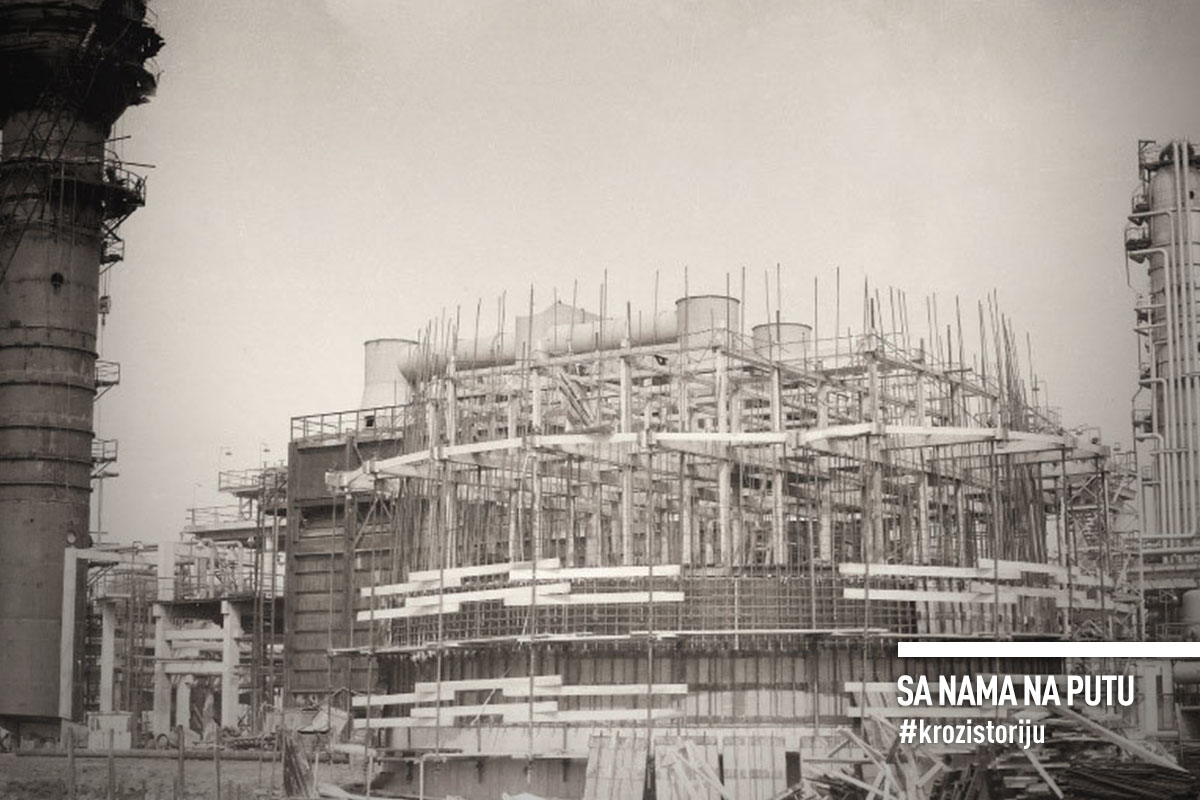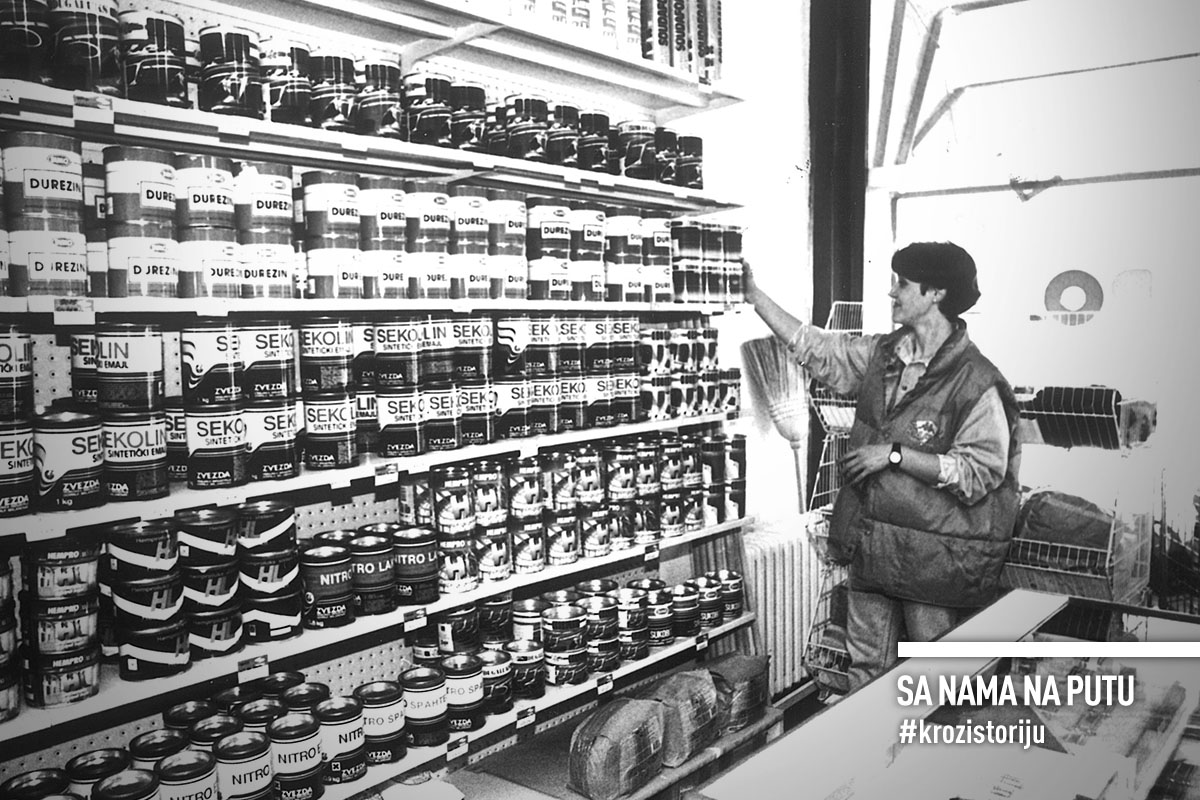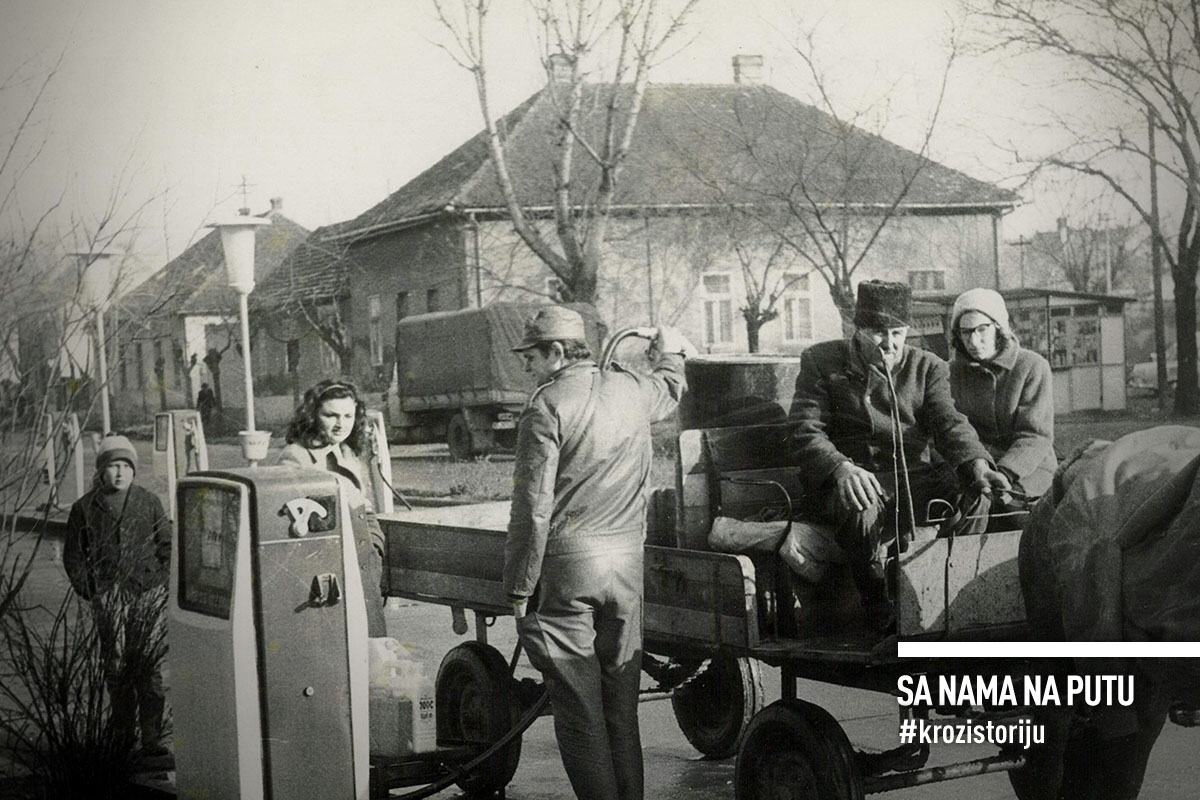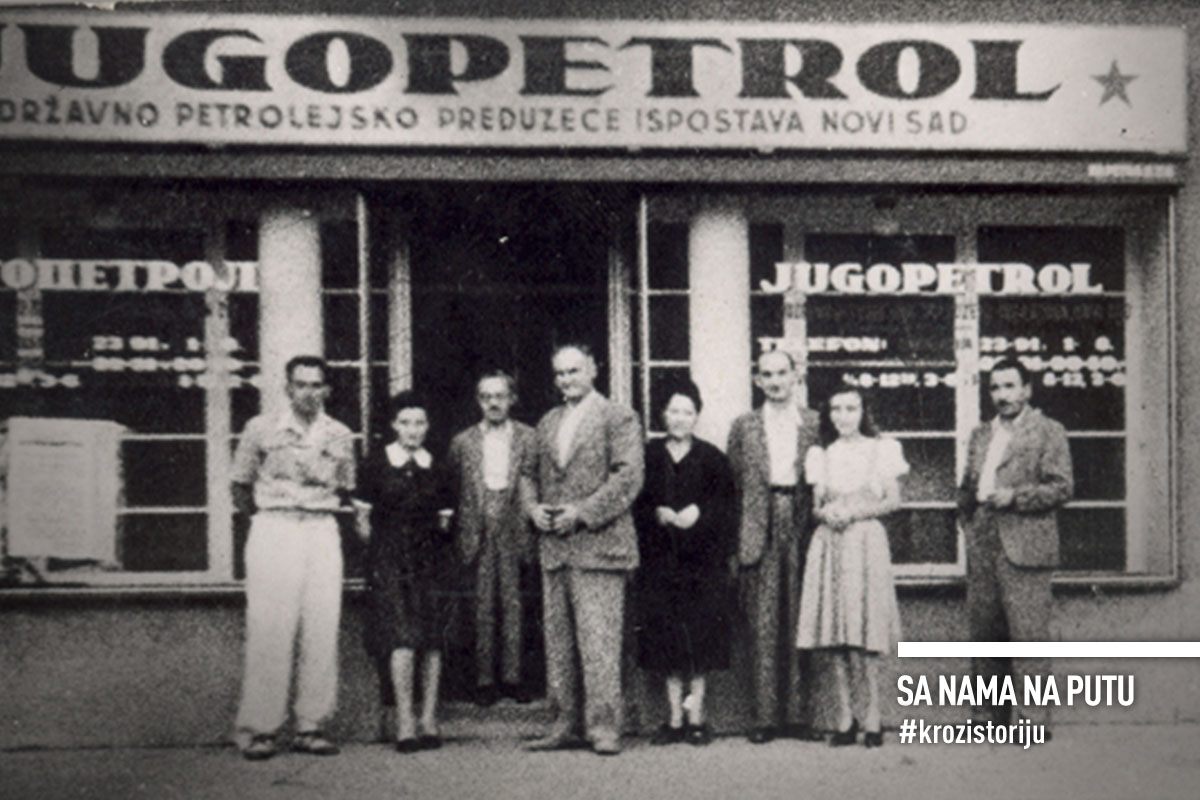The story of Serbia’s oil industry is long and old, and its beginnings date back to a time when people did not really know what oil was and how to use it. Thus, today, rather than in the scientific literature, we will find records and data on the first oil wells in this area in the names of places known since long ago – Paklenica, Smrdelj, Poganac, Katran, Uljanik etc. all of which refer to the appearance of oil, which is black, oily, smells bad, and burns. That is why the story of the development of the oil industry is also the story of the development of the automotive industry, road infrastructure, science, technology… and a real little historical journey into the past and history of our country.
But first things first…

Buying petrol in a – PHARMACY and other troubles of the first car drivers
Although there was oil in this area in the distant past (the first mention dates back to 1788, when the Viennese professor Winterl established that oil existed in Međumurje), its mass use and real, systematic development are more recent.
At first, there was kerosene. In Serbia, it began to be used at the end of the 19th century, but in small quantities and mainly for lighting. It came from Romania, while there were two refineries near the country – in Rijeka and Bosanski Brod.
The development of the industry was boosted by the appearance of the first cars at the beginning of the 20th century. Because they needed petrol, and there was not even a drop of it in Serbia. Actually, there might be a drop or two – benzinum medicinale (petrol used in medicine) could be bought here and there in some pharmacies, but filling the tank of a dearly paid car, which the local population viewed as a dragon rather than a means of transport – was practically an impossible mission!

And so, ironically, the owners of the first Serbian cars spent more time visiting pharmacies and buying what little petrol could be found in them, rather than enjoying driving in their expensive machines.
However, after these almost comical beginnings, the development started… After the First World War, Belgrade got its first petrol station. It was located near the “Topola” tavern, in today’s Nikola Pašić Square. With the increase in the number of vehicles on domestic roads, the need for petroleum products also increased, so the stations began to open in other places. It is recorded that in 1939, there were 156 public petrol stations operating in the then Kingdom of Yugoslavia.
Other branches of the oil industry began to develop faster after 1918. In 1926, the English-Dutch company Shell opened a refinery in Sisak and a warehouse in Belgrade, Čukarica. In 1928, the refinery in Bosanski Brod became the property of the US company Standard Oil, which modernized and expanded it. Before the beginning of World War II, the construction of a refinery in Smederevo began, which, due to the good position of this city on the Danube, was supposed to reduce the time and cost of transporting raw materials purchased from Romania.
Around that time, there were attempts to start oil and gas exploration in the territory of our country, but, proverbially, there was always a lack of money, and foreign capital was not interested in investing in this area. Because, despite all these steps, the consumption of oil and petroleum products in the Kingdom of Yugoslavia between the two world wars was very low – in 1939 it was about 300 thousand tonnes and most of it still involved kerosene for lighting.
The real, historical development of this industry came only after the Second World War…

Keeping up with the world
The four-year-long war destruction from 1941 to 1945 had terrible consequences for the entire country, including the network of warehouses and petrol stations. Research says that, in Serbia alone, about 85 percent of the facilities used to store and sell petroleum products were destroyed.
It was from this extremely unenviable position that the development began, which would soon bring the then Yugoslavia side by side with the world. As early as 1945, the first domestic company for sales and distribution of oil and petroleum products was founded. It had two basic tasks – to organize the supply of the economy that was being rebuilt from the ruins and to work on the modernization of the existing distribution network and the construction of a new one. For the first two years of its existence, it was called Petroleum Company of General State Importance Jugopetrol, and in 1947 it changed its name to Trading Company for Sales and Distribution of Oil and Petroleum Products Jugopetrol Belgrade. It also went down in history as the first company in Yugoslavia registered for foreign trade.

For those who like numbers, this is also worth mentioning – this company started working with fixed assets of about RSD 17 million, working capital of about RSD 28 million, 180 employees, and only nine petrol stations, all of which were located in Belgrade.
But there was no shortage of enthusiasm! In this period, the state began to allocate funds for research and investments in the oil industry, as well as for staff training. As early as 1949, the Oil Exploration and Production Company, the forerunner of one of the most important and longest-lasting companies in Serbia – Naftna Industrija Srbije, or the well-known NIS, started operating!
The task of this company was to discover “black gold” in the eastern part of the Pannonian Basin. Only five months after its establishment, the first natural gas reservoir in Serbia was discovered – on the territory of the settlement Velika Greda, in the municipality of Plandište in the South Banat District.
And the rest is history!
To be continued…
Author of the text: Aleksandra Bogdanović „Istorijski Zabavnik“

